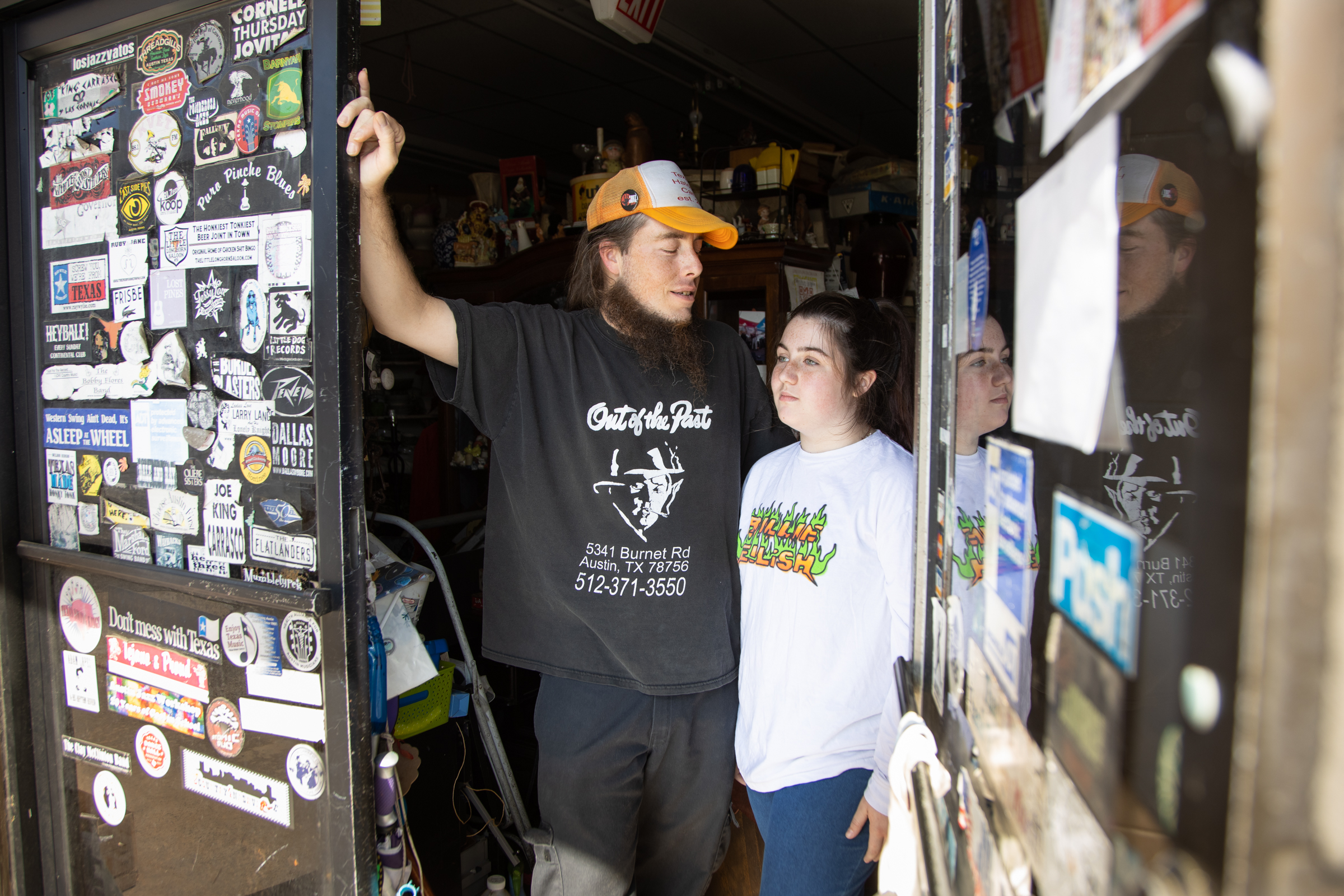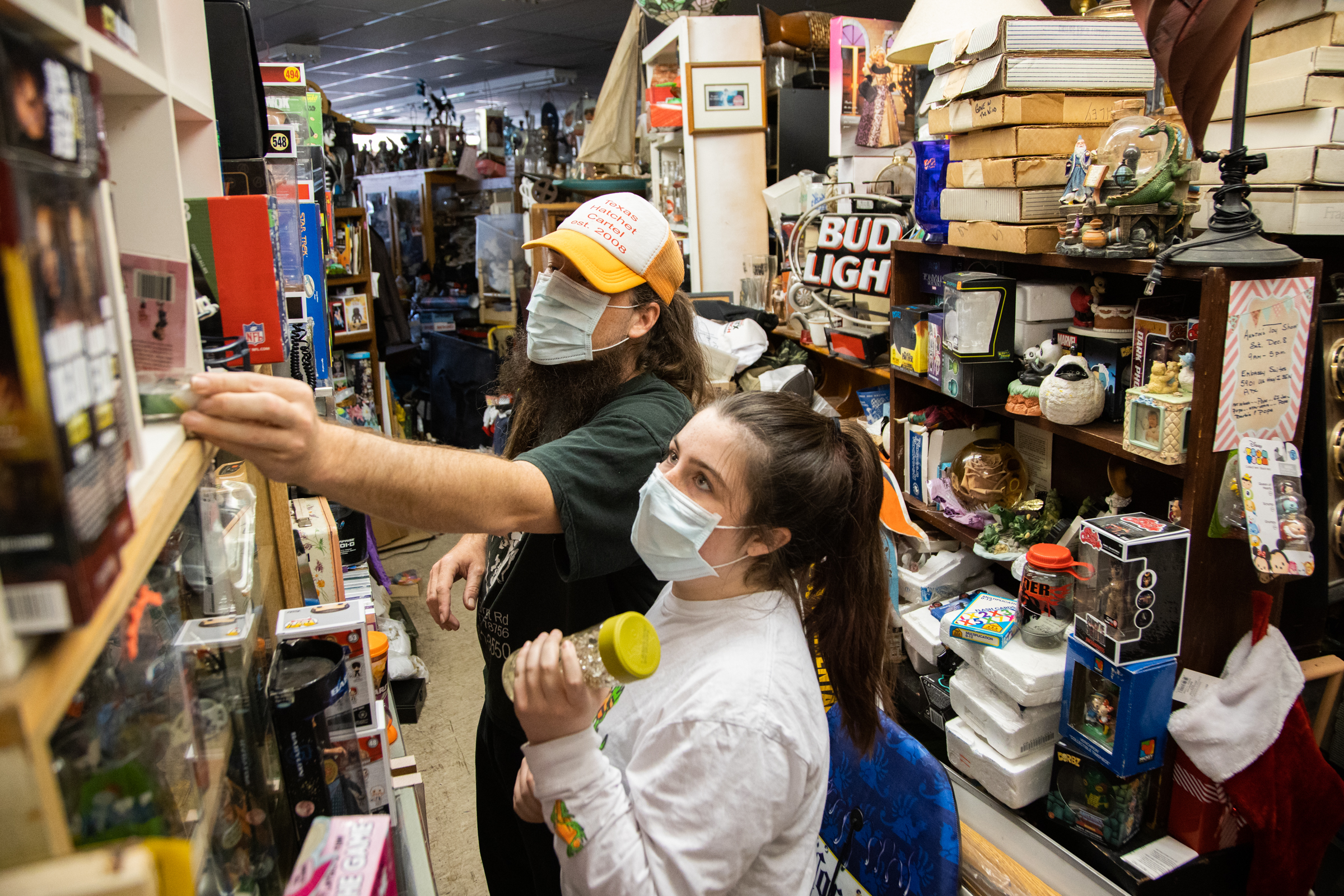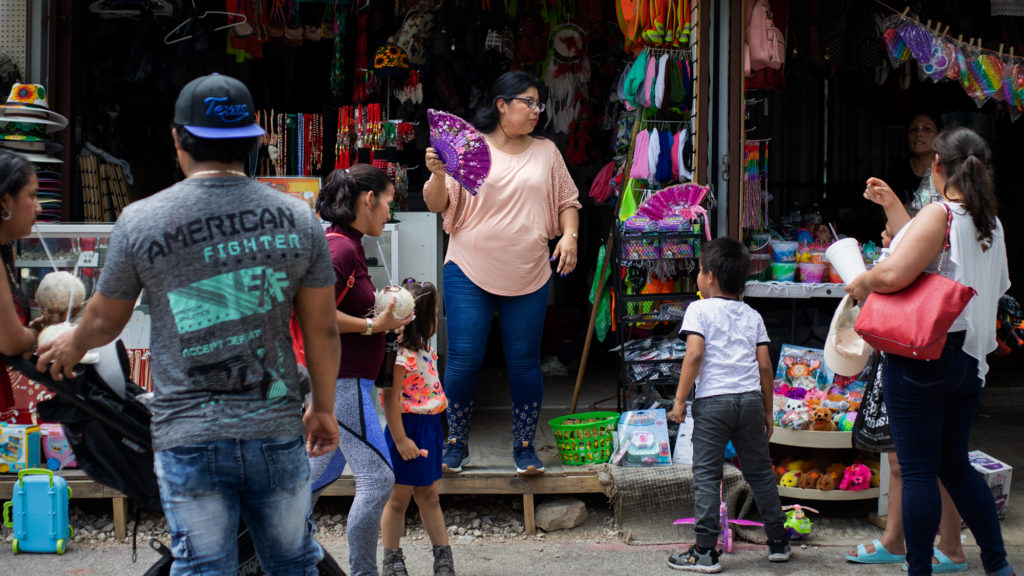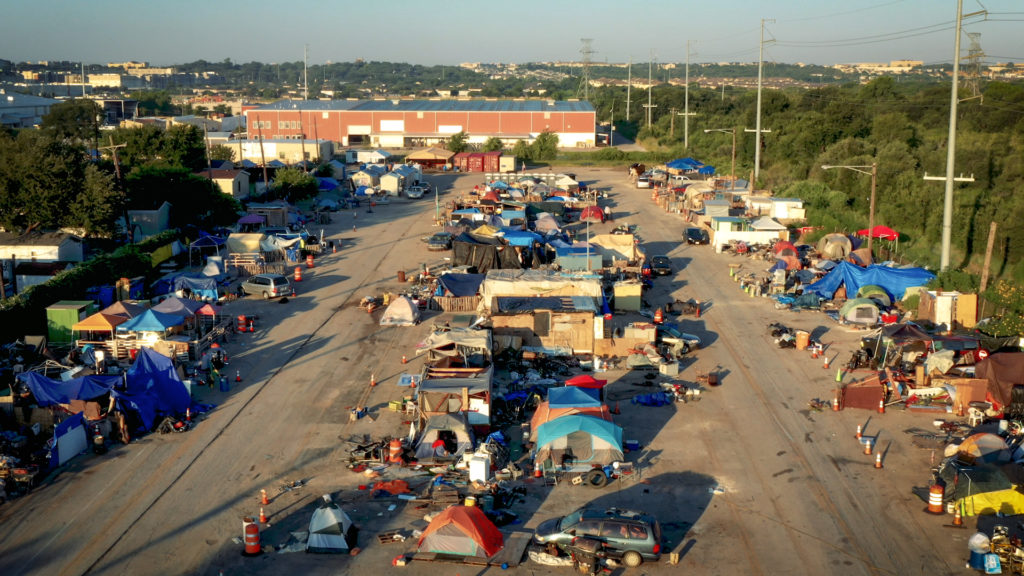If you’d told Austin Doerr six weeks ago he’d soon be working at the Dollar Tree across the street from his family’s business, he might have laughed. But now he’ll tell you stocking the discount store with toilet paper and hand sanitizer feels like a mission.
“I kind of feel like I’m doing something good and helping the community in a sense,” Austin says of his new job. “A lot of people are like, thank you for being here, thank you for being open. Thank you for carrying these products and keeping the shelves full. And it kind of makes you feel good.”
Austin and his mother, Linda, were forced to close their antique and vintage resale shop, Out of the Past, when the city issued its stay-at-home order on March 20. The store’s revenue has supported Austin, his parents, and his 12-year-old daughter for almost 30 years.
To call the business an antique store doesn’t quite do it justice. In fact, the “antiques” sign painted on the window came from previous tenants. The small shop is packed floor to ceiling with such a wide variety of items that it’s almost impossible to take it all in — records, posters, jewelry, vintage glassware, Star Wars action figures, neon beer signs, the list goes on. The city’s alt-weekly The Austin Chronicle once dubbed the store “The Best Place to Dig for Vintage Treasures.”
Before the COVID-19 pandemic enveloped the city, Austin and his mom ran the store seven days a week. Each morning, they set up an assortment of display items to adorn the storefront — coffee tables, antique chairs, festive yard ornaments. The store hosted a regular set of shoppers and sellers, who could make a little money adding to the store’s inventory. But without sales, the business can’t make purchases.
Austin and his daughter Savannah work on reorganizing the family’s shop in anticipation of the day when they can reopen. [Photo by Kelly West]
Austin’s new job at Dollar Tree, even with full-time hours, won’t cover next month’s rent for the duplex he shares with his daughter. In the twelve years he and Savannah have lived there, just blocks from the store, their Central Austin the neighborhood has seen property values soar.
“The rent has tripled since we moved in,” Austin says. “Some of the apartments across the street are going for as much as what I’m paying for that little house. So I’m still lucky to have a house and have my own yard and all that.”
As a single father, Austin worries most about how the shop’s closure will affect his daughter. Savannah has always loved the shop, and spends a lot of time there with her father and grandmother.
“It’s hard to explain something to someone that you don’t even understand yourself,” he says. “I’ve tried to explain to her like, I’m 41 years old and never dealt with anything like this before. Grandma is 71 years old and has never dealt with anything like this before.”
Austin’s dad received a liver transplant five years ago and falls into a high-risk category when it comes to the coronavirus, so Linda has been staying home to reduce their exposure while scrambling to apply for business loans offered through the federal economic relief package. So far, she’s had no luck, and was told by one bank the money is already gone. With fewer than five employees, their business doesn’t qualify for some of the options.
“She has taken every dollar that we’ve ever had and turned it back into the business,” Austin says of his mom, “and I’ve just been lucky to be the good son and be here to help her.”
Now, with everything changing so quickly, and the future so uncertain, Austin is realizing they may not have a backup plan if the store can’t reopen. “I never really thought about it. In the back of my head, I thought our family would always have the store. So, you know, it’s kind of like all this stuff is my 401k.”
He’s been trying to list some items from the store online to keep a few sales coming in, but it’s nothing close to their usual volume, and the unique nature of what they sell makes it difficult. There are just too many pieces, and most are smaller-ticket items, like a bracelet or a toy car. The recent retail-to-go option allowed by the state doesn’t help because the store is designed to be explored.
Austin checks the answering machine at the store frequently, hoping for messages from people looking to buy something. “It’s mostly been people wanting to sell stuff,” he says, “because they need money and they’re hoping we could help them. And it’s like, we can’t do a whole lot of that right now.”
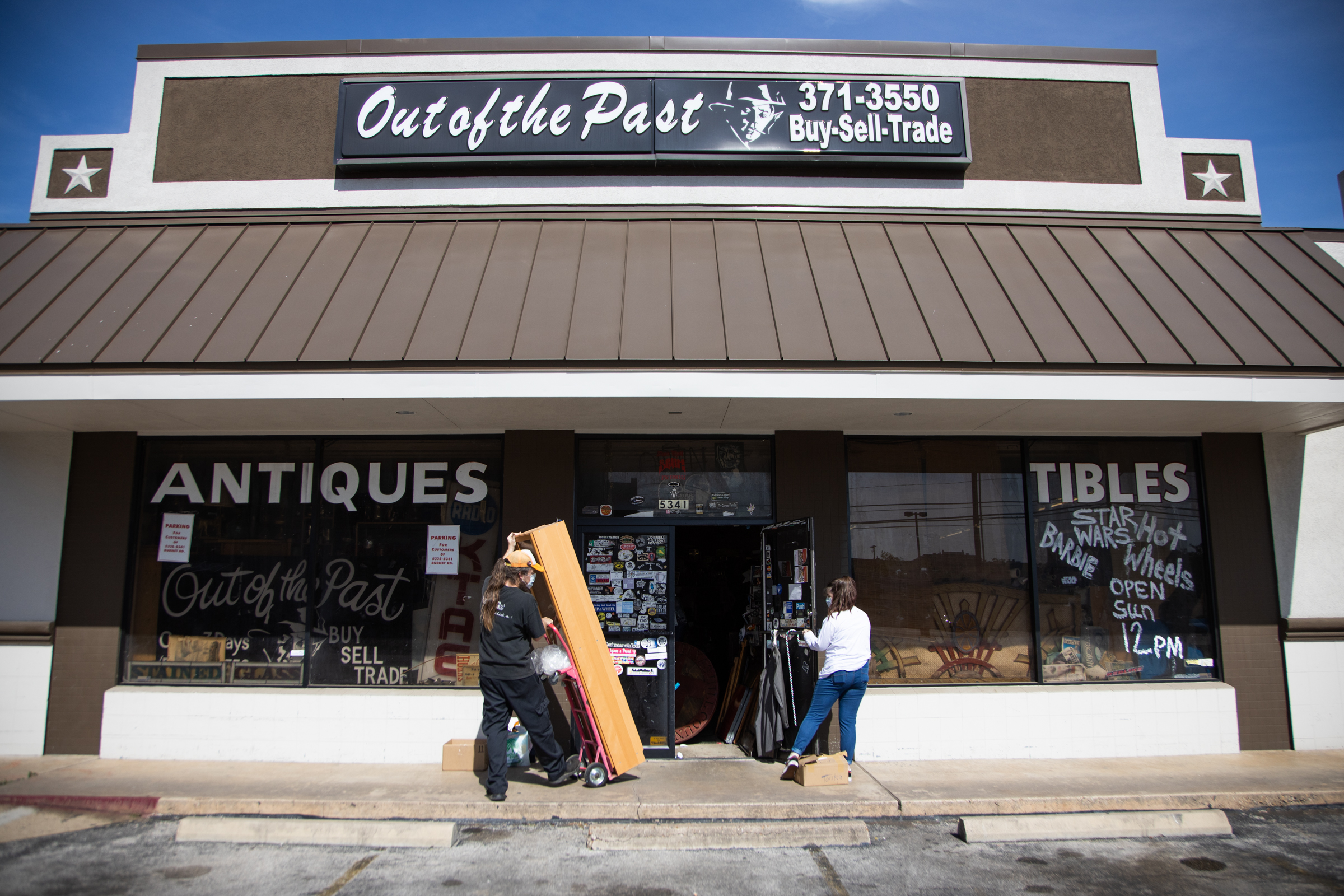
Austin and Savannah wheel a shelf back inside the family’s shop, which has been closed for weeks due to stay-at-home orders issued by the city. “I hope that when it’s time and we’re open again, they remember us and all come back,” Austin says of the store’s customers. [Photo by Kelly West]
On a weekday afternoon, Savannah is at the shop helping her father reorganize. He wants the store to be ready for the day when they’re allowed to reopen — if they make it there. Austin notes other organized efforts he’s seen around town to save local bars and restaurants, and he wonders if people know how much businesses like his are struggling too.
“It is very scary right now, not knowing how long for sure we’re going to be closed and what exactly that would mean for us,” Austin says, but he keeps working toward the best future.
“I hope that when it’s time and we’re open again, they remember us and all come back.”

